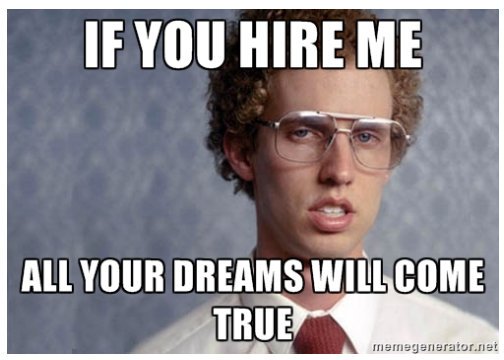Summer vacation is anything but a break from our career development. No matter what you are doing this summer, take the time to focus on your professional goals. I achieved my short term goal: find an internship that involves a passion of mine. I love marine life, so coincidentally I am going to be working for the National Oceanic and Atmospheric Administration. While short term goals are great, I know that I need to start thinking ahead. I have developed a check list to keep in mind during the summer to make sure I stay aware of my career development:
- Pay attention to how I feel about the daily tasks I perform at my internship. If there is a special project I am assigned that I absolutely love, why did I love it? Was it the topic, the type of work, or the team I was working with that made it fun? Paying attention to your gut reaction to work projects or tasks, no matter what job you have, is a great way to learn what you may be good at or what type of work you want to do in the future. Similarly if you end up hating something then maybe that career path is not for you. For example, say you had to make a presentation and present it to a board of people. You loved creating the presentation but hated standing in-front of everyone to actually present it. Perhaps research and project management is a great skill set for you to develop, but you know that you will not be pursuing a career in public speaking.
- Always keep my network in mind. Everyone I meet could play a role in my career path further down the line, you never know! I need to keep in mind the importance of building and maintaining bridges. Whether or not that is with my parents’ high school friends or with my new coworkers, keeping track of my connections is a great way to start thinking about next summer and who I may want to reach out to for an opportunity. If you are staying in a new city, then reaching out to Scripps Alumna in your area could be a great way to find and create connections to help you navigate your new temporary home. Check the Scripps Network for alumna who work in the same city as you. Most people are willing to help a college kid out in their professional development, so keeping that in mind is never a bad idea.
- Keep it creative. This is a personal summer goal, because I am pursuing a career in the entertainment industry. I spend a lot of time writing research papers, studying lab result, and reading political theory in college. I am not complaining, I find my academic tasks very interesting. However, there is little room for me to exercise creativity, like creative writing or film. I enjoy coming up with projects to work on during my free time over breaks just to exercise the right side of my brain. Writing short stories, drawing, and even briefly learning an instrument only to forget it during the school year are some of my favorite creative tasks.

With my career-development checklist in mind, I am ready to start summer break. Unlike this past year, I plan on starting the academic school year next fall with a decent idea of where I want to work and what I want to do my summer before senior year. I learned a lot about my professional goals this last semester, I and cannot wait to see what summer has in store for me.





